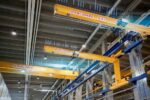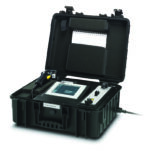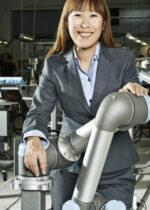New innovations improving primary industry
Day two of the 50th New Zealand Agricultural Fieldays kicked off with the Innovations Awards breakfast where a selection of New Zealand’s top innovations were on display, all with creative ideas on improving New Zealand’s agricultural industry. New Zealand National Fieldays Society CEO Peter Nation spoke of the importance of innovations at the National Agricultural Fieldays. “One of the main reasons the New Zealand agricultural industry is so recognised and respected around the world is because of the innovations coming from awards like these. The people here today are shaping the future of farming and will be making major changes in in the industry in another 12months.” Says Nation. The entrants were supported by a group of knowledgeable and insightful sponsors who have provided advice around law, research, networking, engineering, technology and science. Judges spoke of how the winners were successful at picking good problems to solve and being very creative in the way they solve them. Innovations that were easy to use, cost-effective, efficient and enhanced value came away with top honours. The 2018 Innovation Award winners are: Fieldays Grassroots Prototype Award – Acuris Systems This prototype robot, autonomously navigates kiwifruit orchards while capturing highly accurate fruit data. This data is then analysed to provide growers with quality information and insights to their orchards performance. Fieldays Grassroots Established Award – Pamu Farming New Zealand Landcorp has just completed its second season of deer milking in partnership with the Peter and Sharon McIntyre. Significant, world first research and intellectual property has been developed from behind the farm gate through to a finished RMP approved product which Pāmu Foods can now use to assess market demand and price tolerance. Fieldays Prototype Highly Commended – Maraeroa C Incorporation. Ginseng Berry Gin is a New Zealand first made from ginseng berries grown in […]










